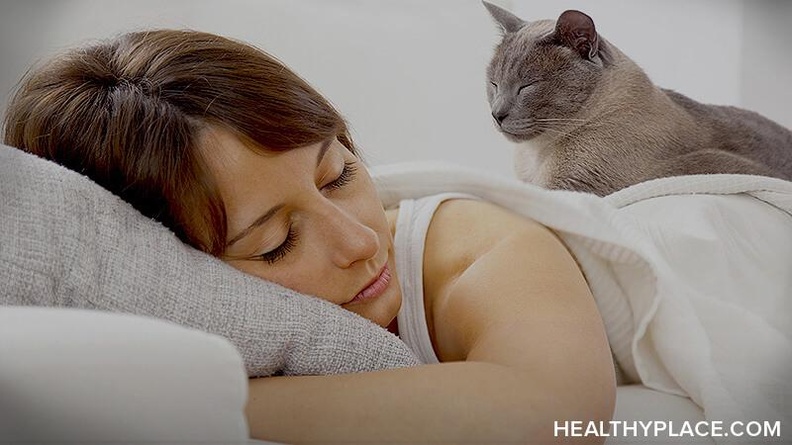Lack of Sleep and Self-Harm: Are They Related?

If you struggle with self-harm, you probably don’t sleep very well. Sleeping too much or not enough often travels with emotional pain. However, poor sleep habits (known as sleep hygiene) can be detrimental to our mental health. It can increase our self-harm urges or lead to other serious problems, so practicing good sleeping habits is key to recovery.
How Lack of Sleep Makes Self-Harm Worse
According to a recent study,1 there is a strong relationship between sleep abnormalities and self-injury. Researchers found that the risk of self-harm is four times higher in teenagers who report insomnia. Moreover, people with sleep disturbances are at higher risk of suicide or suicidal ideation.
Of course, one does not need to be a researcher to understand how the lack of sleep affects our daily lives. In my experience, our emotions fly all over the place, we’re more likely to snap at someone for no reason, and our decisions might be more impulsive and less thought over.
I’m a part-time student myself, and I work full-time, so I understand sleep deprivation. I tend to stay up until late hours and wake up early to catch up with all my assignments. That’s when my emotions take a rapid down-turn. I feel stressed and irritated about the smallest things, and my self-worth reaches its rock bottom.
As a self-harmer, you should listen to that signal and read it as a desperate wake-up call from your body (or rather, a time-to-sleep call). I know it can be hard to rest while your thoughts are racing. However, it’s essential to practice good sleeping habits -- or, at least, do your best and try to sleep regularly.
Quick Tips For Good Sleep Hygiene to Mitigate Self-Harm Risks
Getting enough sleep is easier said than done. Like everything, it needs time, patience, and practice. It helps to think of it as a ritual that you must repeat each night religiously. (If you need extra help with your sleep, please see your doctor.)
Here are a few tips I've learned to help a person get a good night’s sleep:
- Aim for the magical eight hours, but remember to add an extra hour or two of wind-down time. For instance, if you want to go to bed at 11 P.M., make sure to start your bedtime activities at 10 P.M. For example, you might want to take a bath, drink some chamomile tea, or do something relaxing.
- Avoid screen time. It’s hard to imagine an evening without Netflix, but screens are proven to keep us awake at night. Try to schedule an off-screen activity before bedtime, such as reading a book or writing your journal.
- Make sure your bedroom is your sacred sleeping space. Under no condition should you bring your work to your bed, so leave that laptop in another room.
- Stick to a regular sleeping schedule. Going to bed and waking up at the same time each day helps to condition your body and develop healthy habits.
Do you notice a link between the lack of sleep and self-harm? What do you do to maintain proper sleep hygiene? Let me know in the comments.
Sources
- Hysing, M., et al., "Sleep Problems and Self-Harm in Adolescence." The British Journal of Psychiatry, October 2015.
APA Reference
Halas, M.
(2020, November 16). Lack of Sleep and Self-Harm: Are They Related?, HealthyPlace. Retrieved
on 2026, January 2 from https://www.healthyplace.com/blogs/speakingoutaboutselfinjury/2020/11/lack-of-sleep-and-self-harm-are-they-related
Author: Martyna Halas
This just goes to show how important sleep truly is. For too long our society as a whole has undervalued sleep and overvalued exhaustion. Getting adequate sleep is vital for so many areas of good health, and insufficient sleep can have extensive consequences. I love your suggestions for making your sleep space a sacred space, reminding us to really look at sleep as the important thing that it is and treat it as such.